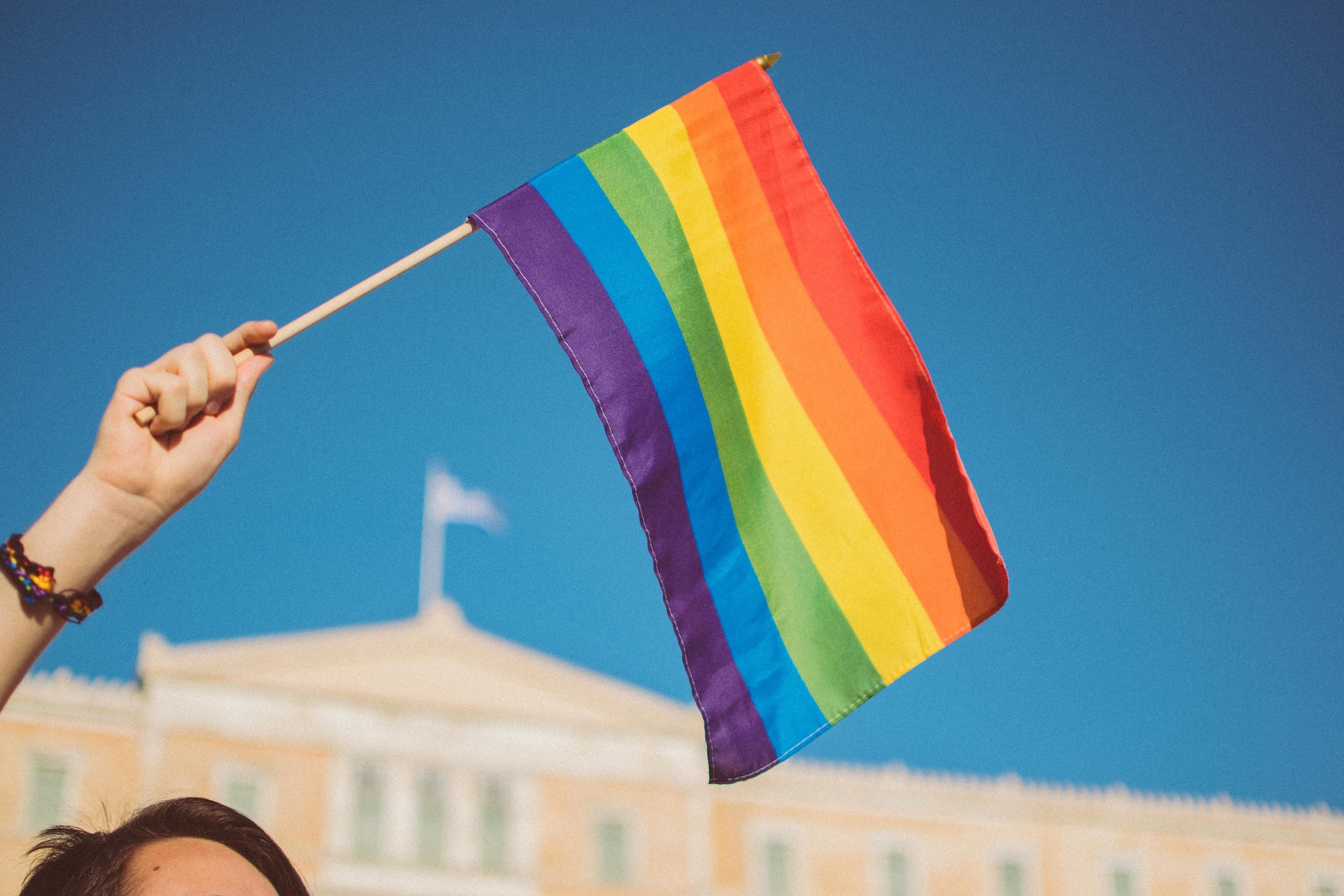Non-discrimination means not seeing rights of same-sex persons as separate and distinguishable from those enjoyed by the majority in the country

Representational image of a queer flag (Unsplash)
The ball is now in the people’s court where same-sex marriages are concerned.
In that sense, the fight of the LGBTQIA+ community for marriage rights has shifted from the judiciary to the legislature.
The Supreme Court of India has refused to step into the shoes of the legislature to recognise such marriages. It is for Parliament and state legislatures to decide on marriage, with the apex court asking the Union government to set up the proposed cabinet secretary-headed panel to look into the issues of same-sex couples, including ration cards, pension, gratuity, and succession.
Reacting to the verdict, Samata Biswas, a professor at Sanskrit College and University, who teaches gender studies, said: “The Supreme Court denying marriage equality to same-gender couples, and pushing it to the currently regressive legislature is a setback for the queer movement in India.”
On the political implication of the verdict, Biswas said: “While matrimony is not and should not be the only form of recognised partnership, denying marriage equality strengthens regressive and conservative voices in society.”
Adish Aggarwala, President of the Supreme Court Bar Association, was a strong voice celebrating the denial of marriage rights: “I welcome the decision of the Supreme Court where they have not allowed same-sex marriage.”
In the end, these are the pertinent points from the verdict:
One concession given to the petitioners was the court allowing a transgender person in a heterosexual union: A transgender man can marry a woman and vice-versa.
If a transgender person wishes to marry a heterosexual person, such marriage will be recognised. A transgender man can marry a woman, or a transgender woman has the right to marry a man.
The political parties are understandably taking time to study the judgement before reacting. The preliminary reactions included their usual rhetoric on the subject that they are concerned for the rights of same-sex persons.
However, the right-wingers were clear on what they thought of the verdict. Sunil Ambekar, Akhil Bharatiya Prachar Pramukh of the RSS, said in a post on X: “The Supreme Court’s decision on same-sex marriage is worth welcoming. Our democratic parliamentary system can seriously discuss all the issues and take appropriate decisions.”
The Vishwa Hindu Parishad also welcomed the Supreme Court’s refusal to grant legal recognition to same-sex marriages, saying the decision not to give “homosexuals” the right to adopt a child is also a “good step”.
The petitioners realise their case has not moved anywhere. Their issue is about marriage and marriage alone, not about tangential rights.
Activist Anjali Gopalan said, “We have been fighting for long and will keep doing so. Regarding adoption, nothing was done. What the CJI said was very good regarding adoption, but it’s disappointing that other justices didn’t agree… this is democracy, but we are denying basic rights to our own citizens.”
While the BJP ruling at the Centre is now saddled with forming a committee to look into the demands of same-sex couples, the activists expect centrist and left parties to take initiatives in states where they are in power.
Lawyer Karuna Nundy says, “…There were some opportunities today that I believe have been pushed off to the legislators, and the Union government has made their stand clear about marriage. We hope their committee will ensure that civil unions are recognised and concomitants of marriage are brought into law, at least regarding civil unions.
“I will also say that Congress and other governments in power in the states have many opportunities to bring into law the recognition of a partner’s rights to make medical decisions because they can legislate on health, they can look at employment non-discrimination, there is a lot that can be done… if we heard anything that was unanimous, it was that queer citizens have rights… rights of queer citizens must be protected, and state governments can protect them.”
In a country where a father and a brother meticulously plan to kill their daughter/sister because she married outside her caste, will it be so easy for a same-sex couple to acquire social legitimacy for their relationship even if the courts have asked the legislature to allow it?
The point is change is a constant. But it is a slow constant. It picks up speed proportional to how fast we shed our ignorance as a society.
Today, LGBTQ+ activists take solace from the fact that the judiciary says they have rights.
Some are disappointed that the Supreme Court did not take the initiative in their favour. But how could have the apex court done so without diluting constitutional equality? The dignity of the LGBTQ+ section can be served and maintained only by ensuring that they get rights enjoyed by every citizen without discrimination.
Today, the court upheld non-discrimination based on one’s sexual orientation but left it to the legislature to accord the right of marriage to this minority section.
Whether or not the court had alternatives, the question post-verdict is how quickly the BJP government can act on the court’s directive. It has a complex political balancing act to do, given its ideological orientation.
It cannot be seen as okay with same-sex relations but citing majoritarian cultural and social values for its reluctance to accord marriage rights.
What we need is a change in our viewpoint. Do we realise that all the laws we have debated and passed to date, all the Constitutional provisions we have subjected to scrutiny, help overcome inadequacies faced by men, women, children, Dalits, OBCs, religious majorities and minorities, same-sex couples, and so on?
We should now exhibit the maturity to realise and accept that all rights and choices relate to people. Just people.
They could be anybody. Their gender, sexual orientation, caste, creed, religion, and nationality are matters of detail.